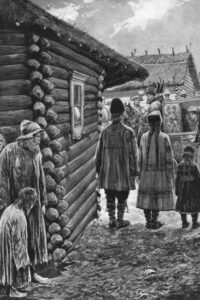We are told that words are powerful, that words matter, that a spoken thought has a ripple effect in the world whether for good or ill. The main character in my novel, “A Voice Within the Flame,” is Samuel, the last great judge and prophet before the monarchy was introduced in Israel. There is a descriptive phrase written of Samuel that is used nowhere else in Scripture, nor is it used to describe any other character. It is stated of Samuel that God “let none of his words fall to the ground.”
This is biblical poetry and does not just refer to Samuel’s prophetic declarations. Those pronouncements, while profound in effect, were infrequent and not the everyday life that Samuel led. This idiomatic expression reveals Samuel’s deep and knowing character rooted in truth. Whatever Samuel spoke, either in the sacred language of God or the common communication of man, it could be trusted.
The ancient Hebrew phrase “fall to the ground” means that something is useless and carries no weight or power. In Samuel’s case, his words did not fall to the ground like “precious liquors if spilt upon the earth, or like an arrow shot from a bow not arriving to the target,” as one commentator wrote. As spilt liquor upon the ground or a missed shot of an arrow are useless, and so are thoughtless and foolish words when spoken.
When Samuel spoke what he said carried the full weight of truth. Many times people did not like what Samuel had to say, or the way he said it, but the measure of everything he spoke was bathed in the oil of truth and the people trusted him.
To expect the truth in others, we must first be truthful. To expect trust in others, we must first be trustworthy. Like Samuel, the truth flowed in his bloodstream; the truth was his core nature. If our words do matter, and if we want those words to produce positive outcomes and not fall useless upon the ground, then we must be devoted to the truth and walk in its light.





